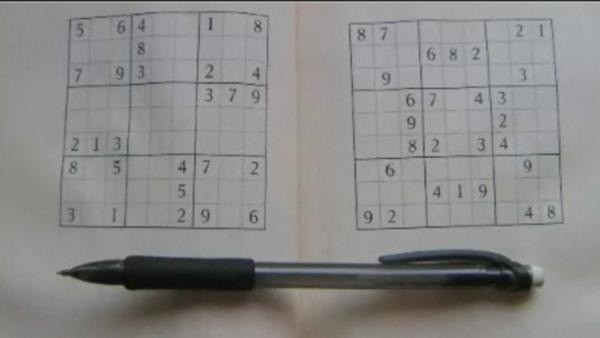The first known case of seizures that were related to solving Sudoku puzzles was reported in the edition of the journal JAMA Neurology. The discovery is interesting in that a lack of oxygen in a natural disaster was the apparent cause of seizures that occurred only when the man involved worked on Sudoku puzzles. Dr. Berend Feddersen of the University of Munich, Germany and colleagues propose that this strange occurrence may set a precedent for unexpected behaviors that are associated with natural disasters that produce a lack of oxygen to the brain for extended periods.
A man was buried in an avalanche and endured oxygen deficiency for 15 minutes before being rescued. The man was 25 years of age and right-handed. The man developed involuntary muscle twitching in his mouth and legs as a result of the lack of oxygen. Talking produced the spasms in the mouth and walking initiated the spasms in the legs.
Months after the accident the man developed involuntary muscle spasms in his left arm when he was trying to solve Sudoku puzzles. The seizures stopped when the man stopped trying to solve Sudoku puzzles. The seizures returned when the man attempted to solve Sudoku puzzles. The seizures ended and the man remained seizure free when he gave up Sudoku puzzles. The man remained seizure free for five years after giving up the puzzles.
Oxygen deprivation often produces seizure disorders that indicate a part of the brain died due to lack of oxygen. This case is the first known in which a mental operation produced a seizure. The as yet unknown link between the part of the brain that solves Sudoku and the loss of control in a single appendage is unique and may represent a new relationship between oxygen deprivation and seizure disorders.















